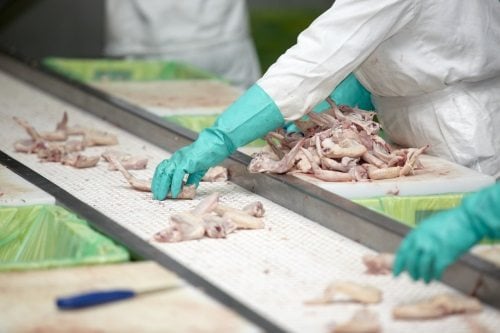The outlook for the global poultry sector in 2014 is generally bullish, driven by the tailwind of sharply lower feed costs and tight global supplies of pork and beef (which are poultry’s main substitutes).
In Q3 2013, producers in the Americas had another quarter of favorable margins as tight supplies of competing proteins kept prices high and lower corn and soy meal prices drove more favorable feed costs, while EU producers follow here with some delay.
Bucking a five year trend, Western Hemisphere producers outperformed their counterparts in the Eastern Hemisphere on profit margin for Q3 and for most of 2013.
“Global poultry fundamentals for 2014 look positive, with cost relief coming from lower feed costs, high prices of competing proteins and recently improved export volumes, but supply growth discipline will be the key element between profitable and not-profitable industries under these bullish market fundamentals,” says analyst Nan-Dirk Mulder.
Better market conditions in 20124
On a regional basis, the robust profitability in the Americas of the last few quarters is expected to continue in 2014, with poultry pricing benefitting from tight supplies of pork and beef, although the recent slowdown of Asian demand may cause a new challenge for the industry.
For Europe, the latest projections for 2014 indicate growth of 0.6%, which is estimated to be in line with EU demand.
Under such circumstances, the industry should be able to benefit from favorable market conditions with tight pork and beef markets and lower feed prices.
Conditions in Russia are improving after a tough year, and the country will benefit from price support from the local government.
In South Africa, the poultry industry will enjoy new safeguards from Brazilian imports.
However any optimism here is tempered by large and growing imports from the EU, resulting in a mixed outlook for South Africa in 2014.
“Despite the broadly positive global outlook, the challenge remains to keep markets balanced. Key Asian markets of China and India are in the midst of a supply glut because of weak demand following food safety and animal disease issues (China) and slower economic growth (India),” says Mulder.
“Early indicators for 2014 reflect better conditions for both markets as supply levels tighten, but in the case of Thailand, a big concern will once more be oversupply.”
Animal disease, food safety of concern
Rabobank believes that animal disease and food safety will continue to be major issues in 2014.
The poultry industry in China has not yet recovered from the outbreak of H7N9 this spring, which has put consumption growth under pressure.
In Mexico, the industry is rebuilding domestic supply but there is a lingering risk that the bird flu will reappear this winter as temperatures fall.










